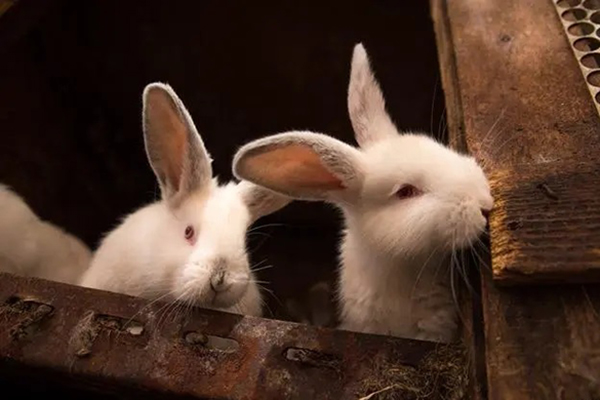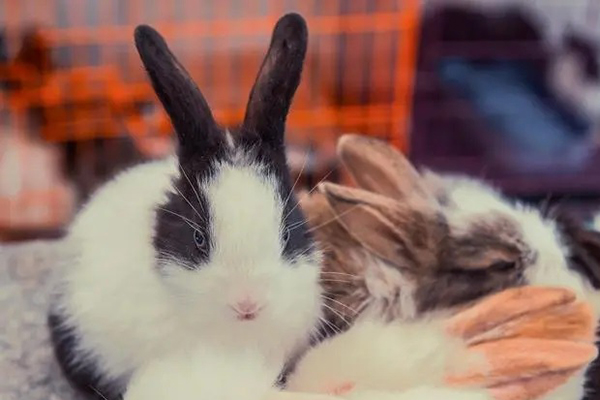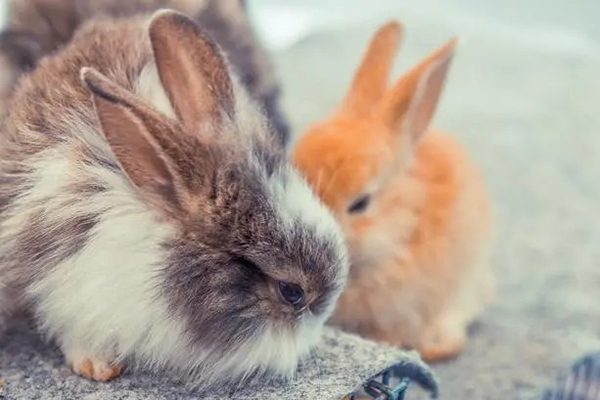1. Preparation before raising rabbits
Before deciding to raise a rabbit, there are several important preparations that need to be completed:
Home environment preparation: Provide a safe, dry, and well ventilated indoor or outdoor space for rabbits to live in.
Preparation of Rabbit Housing Facilities: Select a suitable size rabbit housing and equip it with necessary facilities such as rabbit cages, feeders, and water dispensers.
Feed and forage preparation: Understand the dietary needs of rabbits and purchase high-quality feed and appropriate forage.

2. Daily care and health management of rabbits
To ensure the health and happiness of rabbits, it is necessary to pay attention to the following aspects:
Dietary management: Provide fresh water and an appropriate amount of feed, and maintain reasonable dietary habits.
Regular cleaning: Regularly clean the rabbit shed, replace the food residue in the water dispenser and feeder to maintain cleanliness and hygiene.
Hair care: Regularly comb the hair of rabbits to prevent knotting and fuzziness.
Vaccination: Consult a veterinarian and vaccinate rabbits on time to prevent common rabbit diseases.

3. Behavioral observation and social interaction
Understanding the behavioral habits and social needs of rabbits can help establish good relationships with them:
Observation behavior: Observe the behavior of rabbits in terms of activity, eating, and excretion, and promptly detect abnormal situations.
Provide enough space: Rabbits need enough space to move and rest, avoiding overcrowding.
Social interaction: Engage in appropriate communication and interaction with rabbits to establish trust and connections.

4. Breeding and Care of Rabbits
If you plan to breed rabbits, you need to understand the following key points:
Choose the appropriate mating: Choose healthy and high-quality rabbits for breeding.
Pregnancy and childbirth: Understand the pregnancy and childbirth process of rabbits and provide a safe and comfortable environment.
Care of baby rabbit: Learn how to take proper care of young rabbits, including feeding, keeping warm, and socializing.
5. Prevention and control of common diseases and veterinary treatment
Understand common rabbit diseases and preventive measures, and find suitable veterinarians:
Disease prevention: Regularly check the physical condition of rabbits and pay attention to preventing common diseases such as parasites and digestive problems.
Veterinary treatment: Choose an experienced veterinarian and regularly take rabbits for health checks and necessary treatment.

6. Establish good rabbit breeding habits
Raising rabbits requires investment of time and energy, and establishing good breeding habits will make them healthier and happier:
Regular exercise: Provide appropriate exercise space and time for rabbits to engage in activities and exercise.
Love and care: Give rabbits enough love and care to create a warm living environment.
Continuous learning: Continuously learning about rabbit breeding and health, updating skills and keeping up-to-date with the latest information.

7.How to feed pet rabbits
The daily feeding of pet rabbits includes grass (hay), vegetables, rabbit grain, fruits, etc. Generally, 80% of the food is mainly hay, which is replaced every day. Hay provides a large amount of crude fiber, protein, vitamins, and minerals for pet rabbits, making it their main source of nutrition. Fresh vegetables and fruits contain the trace elements required by pet rabbits, and rabbit pellet food can provide full nutrition.
Rabbits have multiple meals and can be fed multiple times a day, so they should be fed in small amounts with multiple meals. The daily feed amount is 4% to 5% of the rabbit’s body weight. Try to feed early in the morning, eat well at noon, eat well at night, and add more grass at night. The scientific feeding method is to feed rabbits with regular and quantitative feed every day, provide unlimited hay supply 24 hours a day, and appropriately supplement some fresh vegetables and fruits.
8.Requirements for pet rabbits to drink water
Drinking water should be given indefinitely and in an unlimited amount, and there should be a dedicated drinking water bottle for rabbits. Rabbits will not lower their heads and lick water like dogs, which will cause them to choke their noses. Rabbits must drink boiled cold boiled water or pure water. It is not recommended to drink mineral water or raw water.
Raising rabbits is an interesting and challenging task. This article introduces the precautions for beginners in raising rabbits, including preparation before raising rabbits, daily care and health management, behavior observation and social interaction, rabbit breeding and care, common disease prevention and control, veterinary treatment, and establishing good rabbit habits. By following these guidelines, novice breeders can provide a healthy and happy living environment for their rabbits.



